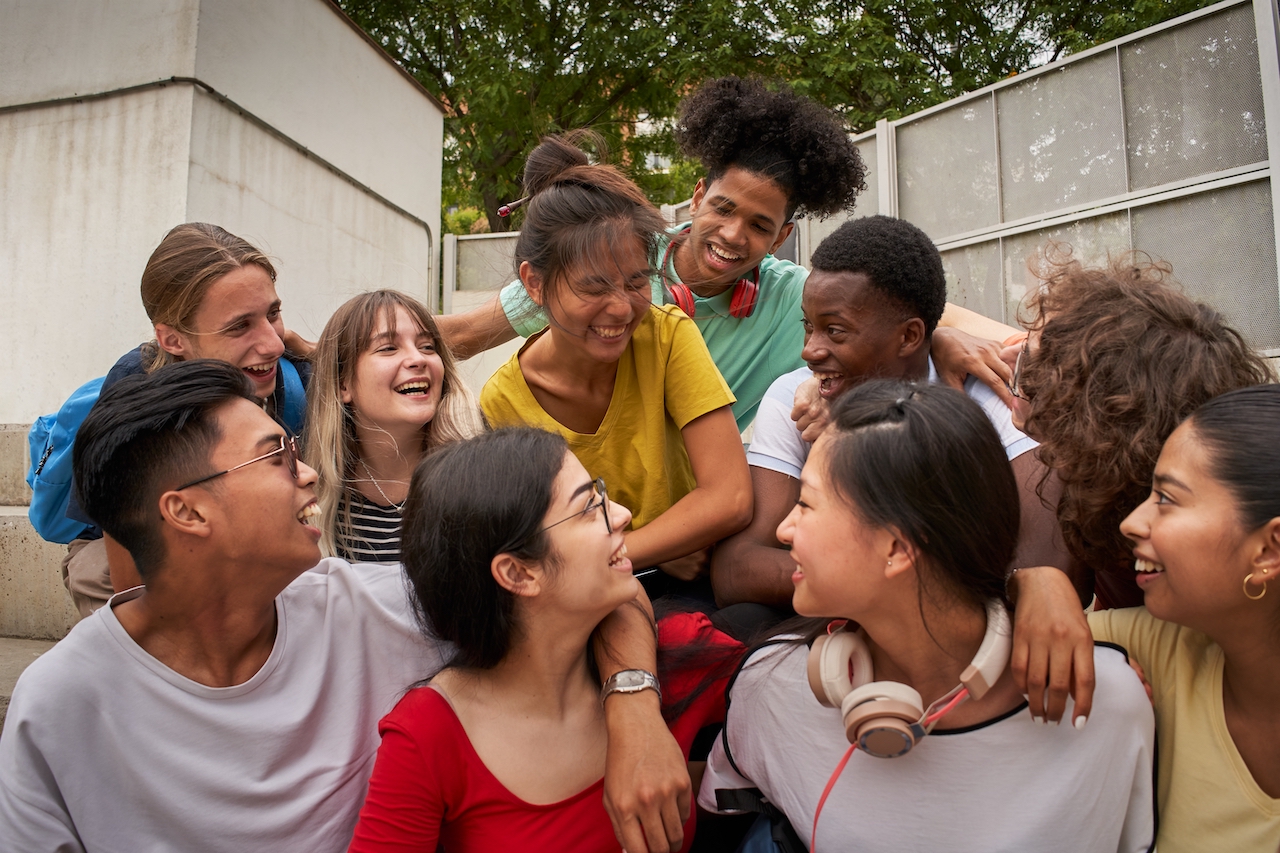Bridging the Wealth Gap: The Influence of Social Circles on Job Opportunities

In an era where the chasm between the wealthy and the less fortunate appears to be ever-widening, a beacon of hope emerges from the realm of social connectivity. New research suggests that social circles, those networks of friends, family, and acquaintances, significantly affect upward mobility among U.S. children and young adults. This revelation paves the way for a nuanced understanding of how career growth and job opportunities can be influenced, not just by individual ambition and determination, but by the company one keeps. This blog post delves into the profound impact of economic connectedness, the power of friendships across economic divides, the journey towards economic mobility, the critical role of place, and the collective path forward in bridging the wealth gap.
The Power of Economic Connectedness
Economic connectedness transcends the mere exchange of goods or the pursuit of individual career advancements; it represents the intricate network of relationships that holds the potential to elevate individuals beyond the confines of poverty or maintain them within it. Through rigorous studies, a compelling truth has been uncovered: those who weave their social fabric with threads connecting them to higher economic strata often gain access to invaluable insights, mentorship, and previously elusive opportunities. These connections serve as lighthouses, guiding through the often opaque waters of career progression, and providing practical, actionable advice. The essence of economic connectedness lies not only in the opportunities it directly presents but also in its ability to demystify the journey toward economic prosperity. It illuminates paths that were once shrouded in mystery, offering examples to emulate and lessons to learn. This web of relationships, rich with potential, challenges the notion that success is the fruit of solitary labor. Instead, it highlights the collaborative nature of economic achievement, showcasing that behind every success story is a tapestry of relationships that fueled the journey. As individuals ascend, they expand the realm of possibility for those around them, turning personal triumphs into collective victories. Economic connectedness, thus, emerges not just as a factor but as a foundation for fostering environments where upward mobility is not just a possibility, but a reality accessible to all, driven by the power of community and the strength of interconnected ambitions.
Tackling Economic Inequality Through Friendship
In the dynamic landscape of economic reform, friendships that cross economic divides play a pivotal role in addressing economic inequality. These unique relationships, often fostered within the nurturing environment of school career pathways programs, serve as the bedrock for a more inclusive society. These programs are not mere educational curriculums; they are catalysts for change, setting the stage for individuals from diverse economic backgrounds to forge connections, share insights, and dismantle the barriers of socioeconomic segregation.
As students from different walks of life come together, they exchange stories, ambitions, and struggles, knitting a social fabric enriched with diversity and mutual understanding. These interactions are far more than simple exchanges; they are the seeds of empathy and solidarity that, when nurtured, blossom into powerful alliances against economic disparity. The friendships formed in these settings challenge the status quo, presenting a united front against the prejudices and stereotypes that often perpetuate economic divides.
The impact of these relationships extends beyond the personal; they have the potential to reshape societal views on wealth and success. By highlighting the shared goals and dreams that transcend economic status, these friendships illuminate the fact that prosperity should not be a fortress guarded by the affluent but a community garden, tended and enjoyed by all. They underscore the belief that economic inequality is not a permanent fixture of society but a challenge that can be surmounted through collective effort and understanding.
Through the lens of friendship, economic inequality is confronted not with resentment or envy, but with compassion and cooperation. These bonds of friendship act as bridges over the chasms of economic divide, proving that when individuals come together, united by common humanity and shared purpose, the journey toward economic equality becomes not only possible but inevitable.
Economic Mobility: A Shared Journey
Economic mobility, often visualized as a solitary climb to success, is profoundly influenced by the collective efforts and support systems within a community. It's a misconception to believe that achievement springs solely from individual toil. In truth, the ascent to economic prosperity is facilitated greatly by the presence of communal scaffolding – networks of mentors, educators, and peers who share their wisdom, resources, and encouragement. These support systems are instrumental in dismantling the barriers that often impede progress for those from less affluent backgrounds.
Programs that promote mentorship across different economic spheres highlight the vital role of shared experiences and guidance in navigating the complexities of career advancement. By fostering connections between those at various stages of their economic journey, these initiatives serve as powerful catalysts for change, demonstrating that success is not a resource to be hoarded but a beacon to be shared. This philosophy encourages a culture where the achievements of one become the stepping stones for others, creating a cycle of growth and opportunity that benefits the entire community.
Moreover, the concept of economic mobility as a shared journey challenges the prevailing narrative of individualism in the pursuit of financial success. It underscores the importance of collective action and mutual support, advocating for a society where progress is measured not by the height one reaches alone but by the depth of the impact one has on lifting others. In embracing this perspective, communities can transform the landscape of opportunity, making the climb toward economic prosperity a journey not of isolation but of solidarity, where each step forward is a stride toward a more equitable and inclusive future.
The Role of Economics of Place in Upward Mobility
The concept of the economics of place underscores a fundamental truth in the pursuit of economic mobility: geography plays a critical role in shaping the opportunities available to individuals. The landscape of opportunity is not evenly distributed; it varies significantly based on one's zip code. In areas enriched with thriving industries, top-tier educational institutions, and robust networks of mentors, residents find themselves in an ecosystem primed for career advancement and economic growth. These environments act as incubators for ambition, where dreams are nurtured and the seeds of potential can flourish.
Conversely, communities that are economically stagnant, with limited access to quality education and employment opportunities, often find their residents ensnared in a cycle of poverty. The stark contrast between these realities highlights the urgent need for strategic investments in underdeveloped areas. By funneling resources into these communities—whether through the introduction of mentorship programs, the enhancement of educational infrastructures, or the stimulation of local economies—we can begin to level the playing field.
Such initiatives are not merely acts of charity; they are investments in the collective future. Elevating the economic prospects of underprivileged areas ignites a ripple effect, fostering environments where upward mobility is not an anomaly but a norm. This approach acknowledges that prosperity should not be contingent upon the accident of birth location but should be a reachable horizon for all.
In essence, addressing the economics of place is a critical step towards rectifying the imbalance of opportunity that characterizes the current landscape. It calls for a concerted effort to dismantle the geographical barriers to success, paving the way for a future where every individual has the means to climb the ladder of economic mobility, regardless of where their journey begins.
Forward Momentum: The Path Ahead
As we stand at the precipice of societal transformation, the mission to bridge the wealth gap looms large, teeming with both formidable obstacles and unparalleled opportunities. This journey, while daunting, beckons with the promise of a society rooted in equity and unfettered access to career advancement. Central to this endeavor is the catalytic role of social connectivity. It is through the deliberate weaving of our social fabrics, intertwining lives across economic spectrums, that we can begin to dismantle the entrenched barriers of economic disparity.
The essence of forging forward momentum lies not merely in acknowledging the disparities that exist but in actively engaging in the strategies that have shown the potential to transcend them. The cultivation of friendships that bridge economic divides, the nurturing of economic mobility as a collective pursuit, and the strategic intervention in the economics of place are pillars upon which a more inclusive future can be built. These are not just theoretical constructs but actionable pathways illuminated by research and lived experiences.
This endeavor demands more than passive aspiration; it requires a hands-on approach to reshaping the economic landscape. By championing initiatives that enhance access to education, facilitate mentorship, and stimulate economic development in underserved communities, individuals and institutions alike can contribute to a more equitable society. It calls for a relentless pursuit of policies that aim to level the playing field, ensuring that one's zip code does not predetermine their economic destiny.
In essence, the path ahead is paved with collective action and an unwavering commitment to equity. By embracing the interconnectedness of our destinies, supporting one another's ascent, and challenging the status quo, a future where economic mobility is the norm rather than the exception is within our grasp. This is not just a journey of individual triumphs but a collective march towards a horizon where prosperity is shared and the wealth gap is but a relic of the past.
Additional resources:







